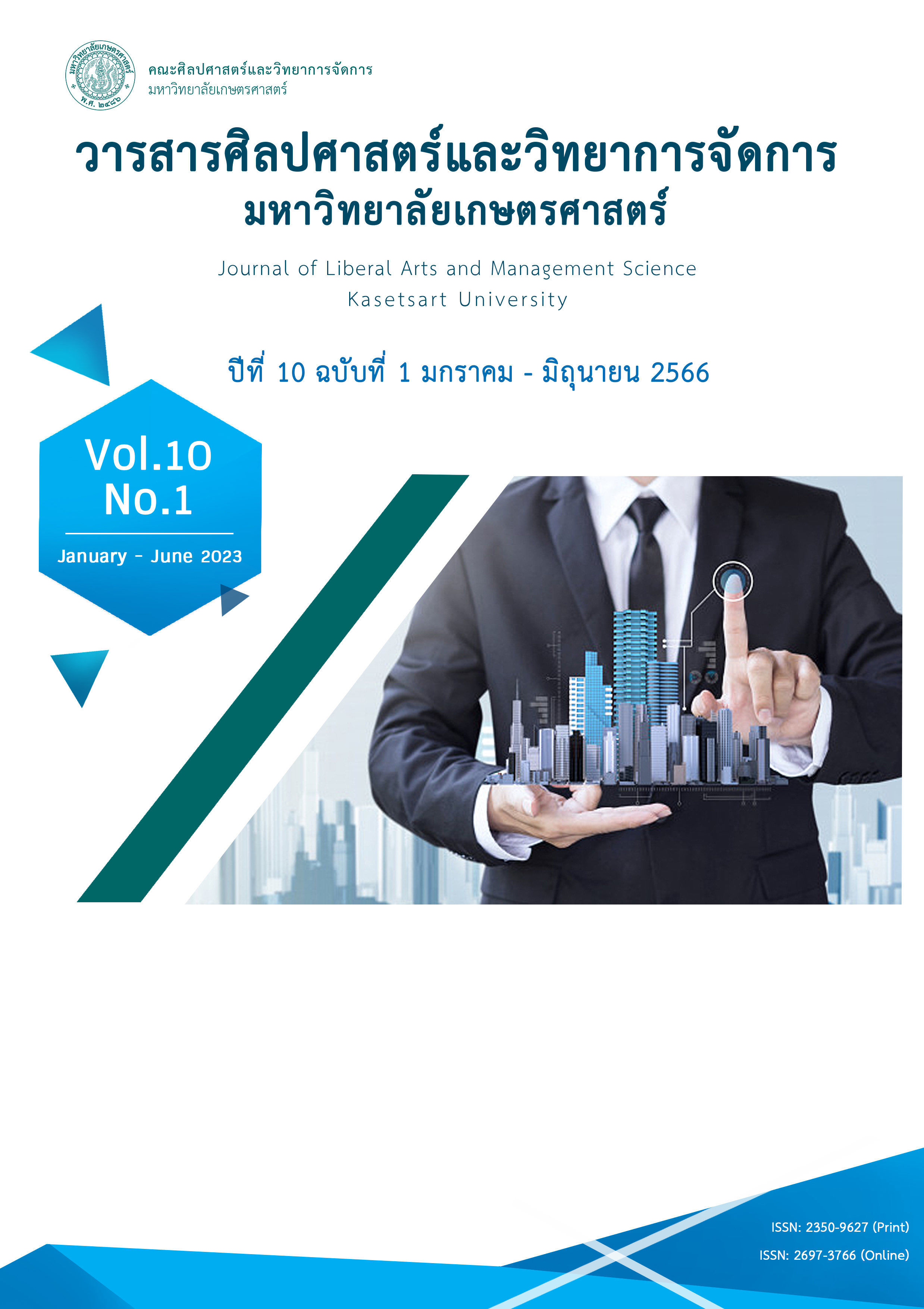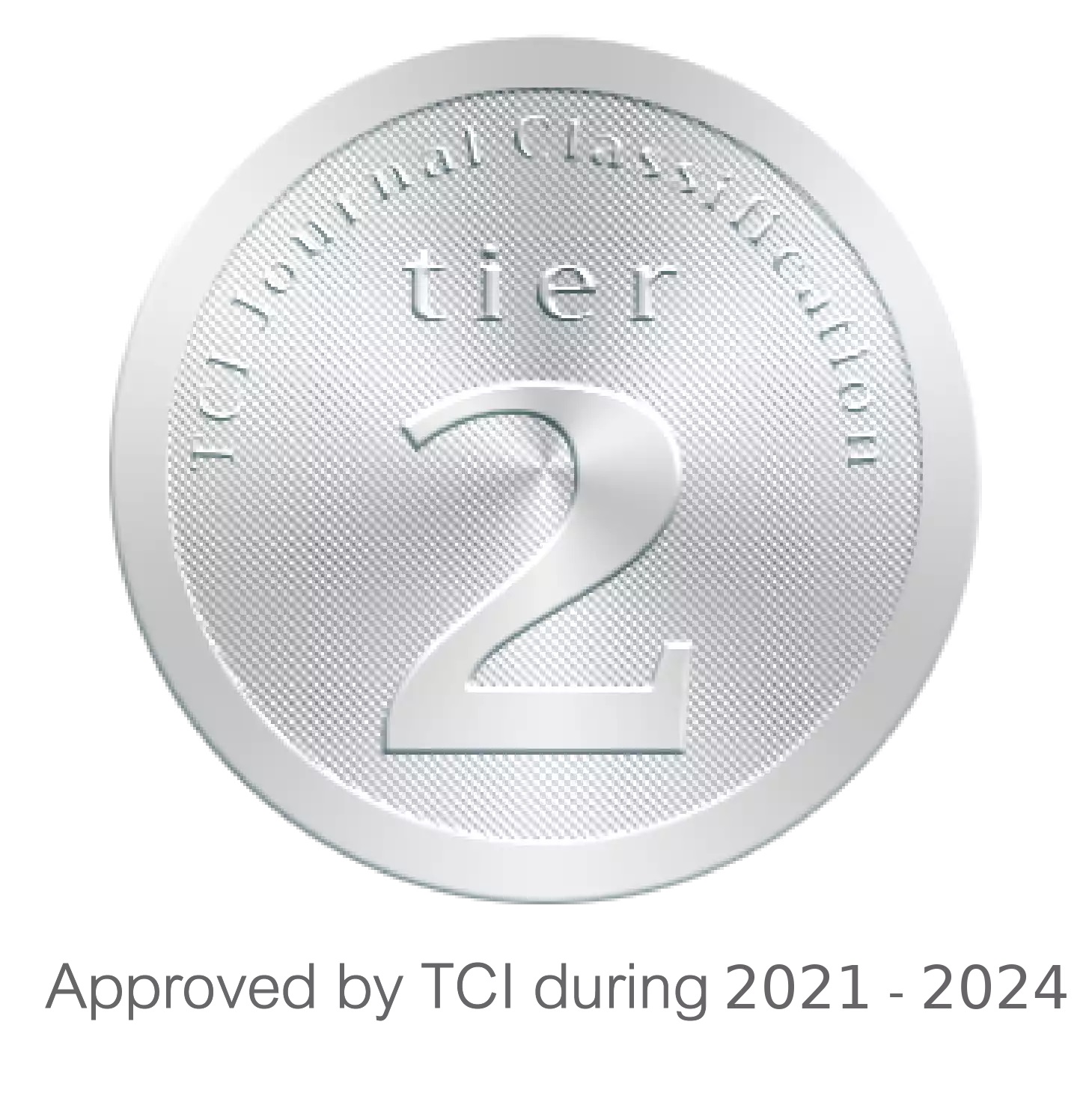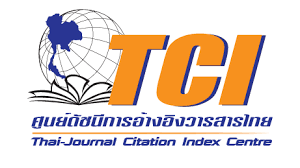RELIGIOUS TOURISM, PERSONAL BELIEF, INDIVIDUAL LEARNING, AND TOURISM BEHAVIOR: EMPIRICAL EVIDENCE FROM PHRA THAT PHANOM TOURISTS IN THAILAND
Keywords:
การท่องเที่ยวเชิงศาสนา, ความเชื่อของบุคคล, การเรียนรู้ส่วนบุคคล, พฤติกรรมการท่องเที่ยว, นักท่องเที่ยวพระธาตุพนมAbstract
This study examines the effects of religious tourism, personal belief and individual learning on the tourism behavior of Phra That Phanom tourists in Thailand. 400 Phra That Phanom tourists in Thailand are the samples of the study. Hierarchical multiple regression analysis was utilized to investigate the direct and moderating effects. The results indicate that religious tourism, personal belief and individual learning significantly and positively affect tourism behavior. In addition, both personal belief and individual learning have critical moderating effects on religious tourism-tourism behavior relationships. In summary, religious tourism plays a significant role in influencing, affecting, motivating, and persuading tourists’ behaviors to visit Phra That Phanom in Thailand. Moreover, personal belief and individual learning can, directly and indirectly, promote, support and advance tourists for visiting and revisiting Phra That Phanom. The results suggest that executives and other related government agencies can promote sustainable religious tourism of Phra That Phanom by maintaining, managing and creating the important characteristics, benefits and values that will help motivate and influence all tourists from Thailand and other regions to visit and revisit Phra That Phanom on a regular basis.
Keywords: religious tourism, personal belief, individual learning, tourism behavior, Phra That Phanom tourists
Downloads
References
Ahmad, A., Jamaludin, A., Zuraimi, N. S. M., & Valeri, M. (2021). Visit intention and destination image in post-Covid-19 crisis recovery. Current Issues in Tourism, 24(17), 2392-2397.
Ajzen, I. (1991). The theory of planned behavior. Organizational Behavior and Human Decision Processes, 50, 179–211.
Ariffin, S. K., Aun, T. L., & Salamzadeh, Y. (2018). How personal beliefs influence consumer attitude towards online advertising in Malaysia: To trust or not to trust? Global Business and Management Research: An International Journal, 10(1), 30-47.
Balbastre, F., Oltra, V., Martinex, J. E., & Moreno, M. (2003). Individual, group and organizational learning levels and three interactions. Management Review, 1(3), 253-267.
Hair, J. F., Black, W. C., Babin, B. J., & Anderson, R. E. (2010). Multivariate Data Analysis: A Global Perspective, 7th ed, New Jersey: Person Prentice Hall.
Heidari, A., Yazdani, H. R., Saghafi, F., & Jalilvand, M. R. (2021). A networking approach to analyzing religious tourism businesses: The case of Al-Atabat Al-Aliyat in Iraq. Journal of Islamic Marketing, 12(2), 427-450.
Jalilvand, M. R., & Semiei, N. (2012). The impact of electronic word of mouth on a tourism destination choice: Testing the Theory of Planned behavior (TPB). Internet Research, 22(5), 591-612.
Kartal, B., Tepeci, M., & Atli, H. (2015). Examining the religious tourism potential of Manisa, Turkey with a marketing perspective. Tourism Review, 70(3), 214-231.
Kline, D. A. (2012). The quaker journey and the framing of corporate and personal belief. Journal of the Society for Psychology Anthropology, 40(3), 277-296.
Krejcie, R. V., & Morgan, D. W. (1970). Determining sample size for research activities. Educational and Psychological Measurement, 30, 607-610.
Kusemererwa, C., Munene, J. C., Laura, O. A., & Balunywa, J. W. (2020). Individual learning behavior: Do all its dimensions matter for self-employment practice among youths in Uganda? Journal of Enterprising Communities: People and Places in the Global Economy, 14(3), 373-396.
Leri, I., & Theodoridis, P. (2021). How do personality traits affect visitor’s experience, emotional stimulation and behavior? The case of win tourism. Tourism Review, 76(5), 1013-1049.
Leong, Q., Karim, S. A., Awang, K. W., & Baker, A. Z. A. (2017). An integrated structural model of gastronomy tourists’ behavior. International Journal of Culture, Tourism and Hospitality Research, 11(4), 573-592.
Mutonyi, B. R., Slatten, T., & Lien, G. (2020). Empowering leadership, work group cohesiveness, individual learning orientation, and individual innovative behavior in the public sector: Empirical
evidence from Norway. International Journal of Public Leadership, 16(2), 175-197.
Shepherd, R. (2010). The relationship between personal belief and inspection judgement. British Journal of Religious Education, 32(3), 215-227.
Shinde, K. A., (2015). Religious tourism and religious tolerance: Insights from pilgrimage sites in India. Tourism Review, 70(3), 179-196.
Tajeddini, K., & Ratten, V. (2020). The moderating effect of brand orientation on inter-firm market orientation and performance. Journal of Strategic Marketing, 28(3), 194-224.
Tickle, E. L., Brownlee, J., & Nailon, D. (2005). Personal epistemological beliefs and transformational leadership behaviors. Journal of Management Development, 24(8), 706-719.







